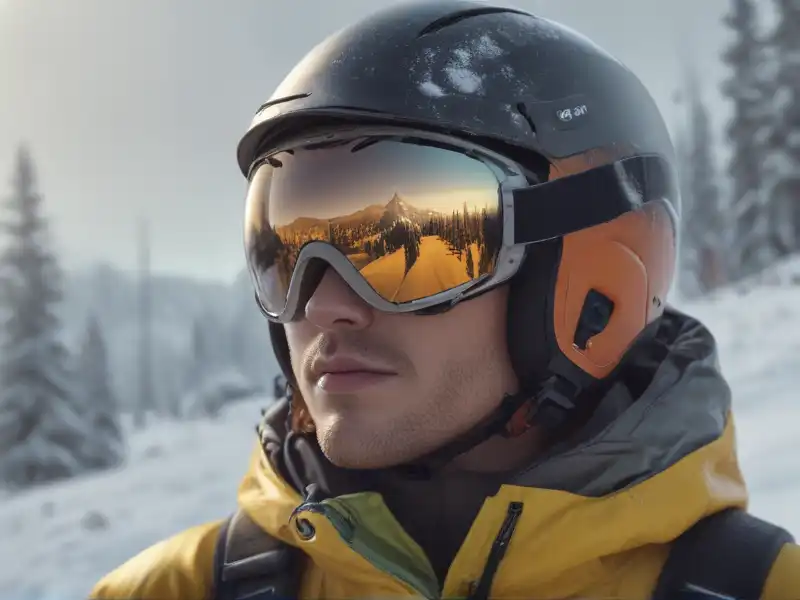The Art of Freestyle Skiing: Tricks, Techniques, Progression
Before you can soar through the air or slide effortlessly across rails, mastering the basics is essential for building confidence and ensuring safety on the slopes.
Proper Body Positioning:
The key to success in freestyle skiing begins with proper body positioning. Keeping your weight centered and balanced over your skis is crucial for maintaining control and stability, especially when navigating features in the terrain park. Practice maintaining a strong, athletic stance with your knees slightly bent and your arms relaxed yet ready to react to changes in terrain.

Edge Control:
Being able to effectively engage and disengage your edges allows you to carve smooth turns, maintain speed, and control your trajectory down the mountain. Practice edging drills on groomed runs to develop a feel for how your skis respond to different edge angles and pressure.
Balance and Stability:
Achieving balance and stability on skis is essential for executing tricks and maneuvers with confidence. Focus on strengthening your core muscles and improving your proprioception (awareness of your body's position in space) through exercises such as squats, lunges, and balance drills. Developing a strong sense of balance will not only enhance your performance but also reduce your risk of injury on the slopes.
Building a Strong Foundation:
Start by honing your skills on groomed runs and gradually progress to more challenging terrain as you gain confidence. Don't be afraid to seek guidance from experienced skiers or instructors who can provide valuable feedback and advice to help you improve.
Freestyle Tricks
360s:
The 360, or "three-sixty," is a foundational trick in freestyle skiing that involves rotating your body a full 360 degrees while in the air. While it may seem daunting at first, mastering the 360 is a rite of passage for any aspiring freestyle skier. Start by practicing on small jumps or natural features, focusing on generating rotational momentum with your arms and hips to spin smoothly and land cleanly.
540s and Beyond:
Once you've mastered the 360, it's time to up the ante with more complex spins such as the 540, 720, and beyond. These multi-rotation spins require precise timing, coordination, and spatial awareness to execute properly. Practice spinning on trampolines or in foam pits to refine your technique and build confidence before taking your skills to the snow.
Grabs:
Adding grabs to your jumps is a stylish way to add flair and creativity to your skiing. Common grabs include the mute grab (grabbing the front edge of your ski with your front hand), the Japan grab (grabbing the ski between your legs with your leading hand), and the tail grab (grabbing the back end of your ski with your trailing hand). Experiment with different grab variations to find your signature style and make your tricks stand out.
Rails and Boxes:
In addition to aerial maneuvers, freestyle skiing also encompasses rail and box features found in terrain parks. Grinding rails and sliding boxes requires precise balance, timing, and body control to navigate smoothly and stylishly. Start with smaller features and gradually progress to larger and more challenging setups as you build confidence and skill.
Inverted Spins:
For the most daring freestyle skiers, inverted spins add an extra element of excitement and risk to their repertoire. Inverted spins involve flipping your body upside down while spinning, resulting in visually stunning and gravity-defying maneuvers. Start by practicing on trampolines or in foam pits under the guidance of experienced coaches or instructors before attempting inverted spins on snow.
Progression and Safety:
As you explore the world of freestyle tricks, remember to prioritize progression and safety above all else. Start with smaller, more manageable tricks and features, and gradually work your way up to more advanced maneuvers as your skills and confidence grow. Always ski within your limits, and never attempt tricks or features that are beyond your ability level.

Terrain Park Mastery
The terrain park is the ultimate playground for freestyle skiers, offering a diverse array of features and obstacles to explore and conquer. From rails and boxes to jumps and halfpipes, mastering the terrain park is essential for taking your freestyle skiing to the next level. Let's delve into the world of terrain park mastery and discover the skills and techniques needed to navigate park features with confidence and style:
Reading the Terrain:
Before dropping into the terrain park, take a moment to assess the layout and features available. Pay attention to the size, shape, and difficulty level of each feature, and identify lines and routes that suit your skill level and preferences. Look for natural takeoff and landing zones, and visualize your approach and exit strategy for each feature.
Approaching Features:
Approaching terrain park features requires a combination of speed, timing, and body positioning. Start by skiing in with enough speed to carry you smoothly up and over the feature, but not so fast that you lose control or overshoot the landing. Keep your body relaxed and centered over your skis, with your knees bent and your arms ready to absorb impact.
Executing Tricks:
Executing tricks in the terrain park requires precision, confidence, and commitment. As you approach a jump or feature, focus on generating pop off the lip by pressing down into your skis and extending your legs explosively. Once airborne, initiate your chosen trick by rotating your body and grabbing your skis as needed, then spot your landing and prepare to absorb impact with your legs upon touchdown.
Stylish Landings:
Sticking the landing is crucial for maintaining flow and momentum through the terrain park. Aim to land with your skis parallel to the slope and your weight centered over your feet, absorbing impact with your legs to maintain stability and control. Keep your eyes focused downhill and anticipate any adjustments needed to maintain your line and speed through the park.
Progression and Confidence:
Progressing in the terrain park requires a combination of practice, patience, and confidence. Start with smaller features and basic tricks, and gradually work your way up to larger and more challenging setups as you build skill and confidence. Don't be afraid to push your limits and try new tricks, but always ski within your ability level and prioritize safety above all else.
Respect and Etiquette:
Respect for others and adherence to terrain park etiquette are essential for maintaining a safe and enjoyable environment for all park users. Always yield to skiers and riders ahead of you, wait your turn in the lift line, and communicate your intentions clearly to other park users. Respect park closures and follow posted signage and guidelines to ensure a positive experience for everyone.
By mastering the skills and techniques of terrain park skiing, you'll unlock endless opportunities for creativity, expression, and progression on the slopes. Remember to ski within your limits, stay patient with yourself, and above all, have fun exploring the exciting world of terrain park mastery. Whether you're hitting rails, launching off jumps, or carving through halfpipes, the terrain park offers something for every freestyle skier to enjoy and experience.
-

Protect Your Head: The Science Behind Snow Helmet Safety Standards
As winter sports enthusiasts hit the slopes each year, one key piece of equipment stands out as essential for safety: the snow helmet. With advancements in technology and a better understanding of hea...
-

Essential Winter Sports Gear: What You Need to Stay Warm and Safe on the Slopes
Discover the must-have winter sports gear to keep you warm, safe, and comfortable on the slopes. From ski jackets to safety equipment, find out what you need for your next adventure....
-

U.S. Dimes: History, Key Dates & Collecting Strategies
Discover the most valuable U.S. dimes, from 1796 Draped Bust to modern errors. Learn grading secrets and investment strategies for all budgets....
-

Real Factors Determining the Value of the 1961-D Penny
An in-depth analysis of the 1961-D Lincoln cent value. Impact of the MS67 RD grade, price dynamics for Re-punched Mint Mark (RPM) varieties, and technical parameters of Denver minting....